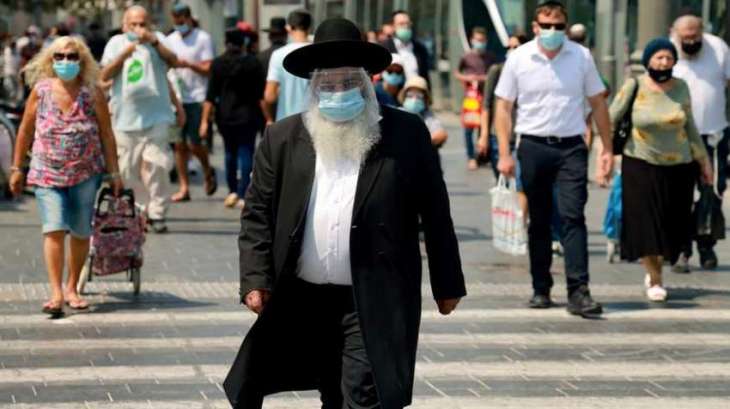Another lockdown in Israel is unavoidable, as the COVID-19 cases have been soaring after the government failed to implement a differentiated approach to each city based on their respective coronavirus infection rates, political experts told Sputnik
MOSCOW (Pakistan Point News / Sputnik - 17th September, 2020) Another lockdown in Israel is unavoidable, as the COVID-19 cases have been soaring after the government failed to implement a differentiated approach to each city based on their respective coronavirus infection rates, political experts told Sputnik.
The "traffic light" plan, which took effect on September 6, is meant to differentiate restrictions for each city based on their respective coronavirus infection rates, with "red" locations subjected to the strictest restrictions followed by "orange," "yellow" and "green" ones.
A week after these restrictions were imposed, 83 locales with a total of nearly half the country's population turned "red." While the government's plan was to impose full lockdowns on virus hot spots, a negative reaction from Israeli Prime Minister Benjamin Netanyahu's ultra-Orthodox coalition partners led to the curfew being applied on an overnight-only basis.
"The first thing that we have to know about this new lockdown in Israel that it could and should be avoided. The transit from a previous lockdown to a normal life was too speedy. The economy was opened immediately and Netanyahu took pride of it. The number of coronavirus cases started to grow. This was the time to introduce the so called traffic light system. The government was too slow to introduce it being afraid of getting in trouble with some powerful sectors such as the ultra-Orthodox," Ksenia Svetlova, a former member of the Israeli parliament, told Sputnik.
Last week, Israel recorded the highest number of coronavirus infections per capita in the world after averaging 199.3 new cases a day per 1 million residents.�
On Monday, Israel had 4,764 new confirmed cases. There are now more than 40,000 active infections and some 1,000 people remain hospitalized.
The country's second lockdown begins on September 18 and will last at least three weeks, overlapping with important holidays the Jews celebrate in the fall.
Svetlova believes that this new lockdown is a rather radical measure that is, however, unlikely to bear fruit and slow down the spread of the virus unless it is extended beyond the proposed three weeks, which, in its turn, would devastate the economy.
"The lockdown seems to me a very radical measure but what I grasp from the Israeli top experts in the field, a short lockdown won't be helpful, so two or three weeks won't work but if we go for a longer lockdown it will end our economy," she said.�
She explained that the financial state of most Israeli households was very different back in March, when the first lockdown was imposed, stressing that people have already used most of their savings. �
The second lockdown will cost the economy, which is in recession due to the pandemic, an estimated 6.5 billion shekels ($1.88 billion), according to the finance ministry.
Zeev Khanin, Israeli political expert at the Department of Political Studies in Bar-Ilan University Ramat-Gan told Sputnik that he was rather optimistic about Israel's economic performance during and after the lockdown period, however, he feared that the political sphere would be unable to remain stable.
"The problem is not that the country will be closed for 3 weeks, this can be overcome. Objectively the economy is coping thanks to the fact that Israel is a high-tech based economy. Even now there are corporations that increase production despite the pandemic. However, what worries me is a degree of rationality in the decision making process. What happens now greatly affects the level of public trust towards the state institutions and the government," he said.
The expert fears that the situation in the country will continue to span out of control as the government uses the health crisis for personal and political motives instead of providing a coherent strategy and guidance, and mobilizing�necessary resources.
Svetlova further explained that Prime Minister Netanyahu chose to "play politics" instead of following scientific advice. He also prioritized the demands of his coalition partners and his own attempts to derail his corruption trial.
According to the proposed lockdown measures, schools and shopping centers will be closed, while Israelis will be obliged to stay within 500 meters of their homes, with the exception of commuting. There will be also strict limitations on indoor and outdoor gatherings.
Non-governmental offices and businesses will remain open but will be closed to the public.
Supermarkets and pharmacies are the only businesses that are to remain open to the public during the looming lockdown.




